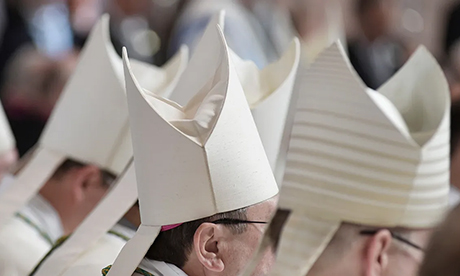From now on bishops will be expected to follow up and report their progress on the proposals delegates presented at October’s Synod on Synodality, says Pope Francis.
The Synod’s final document must be accepted since it constitutes church teaching, says Francis.
“The Final Document participates in the ordinary Magisterium of the Successor of Peter and thus I ask that it be accepted as such” he wrote to bishops when he was handing them the document, using the church’s term for its teaching authority.
Many of its reforms will be a matter of implementing existing canon law, not rewriting it, he clarifies. When necessary, local churches can “creatively enact new ministries and missionary roles” and present their experiences to the Vatican.
Bishops responsibility
Francis said the document offers instruction on enacting the Synod’s final report proposals which is now up to local churches to accept and implement.
Reporting will coincide with bishops’ “ad limina” meetings with the pope and Vatican officials every five years.
Francis is firm about the reporting schedule, stressing that “each bishop will make sure to report which choices were made at his local church regarding what is contained in the final document, what challenges they faced and what were the fruits”.
The Pope also says help with implementation will be provided.
He says the General Secretariat of the Synod, along with other Vatican departments, will ensure “individual national churches join the [ongoing] synodal journey”.
What will bishops reports contain?
Particular issues the Pope will be seeking from the bishops’ reports will reflect the key priorities the final Synod document highlights.
The way these are implemented will vary, he says. That’s because the bishops of each country or region are being encouraged to seek “more encultured solutions” to issues involving local traditions and challenges.
Local churches are given freedom to implement these within their “different ecclesial, cultural and local contexts”.
Key priorities (that are now part of Church doctrine) aim to promote a more horizontal Church structure. There must be greater transparency and more accountability for bishops and church leaders, increased lay involvement through new ministries and adjusted governing structures, and a guarantee there is space for previously marginalised groups.
Source
